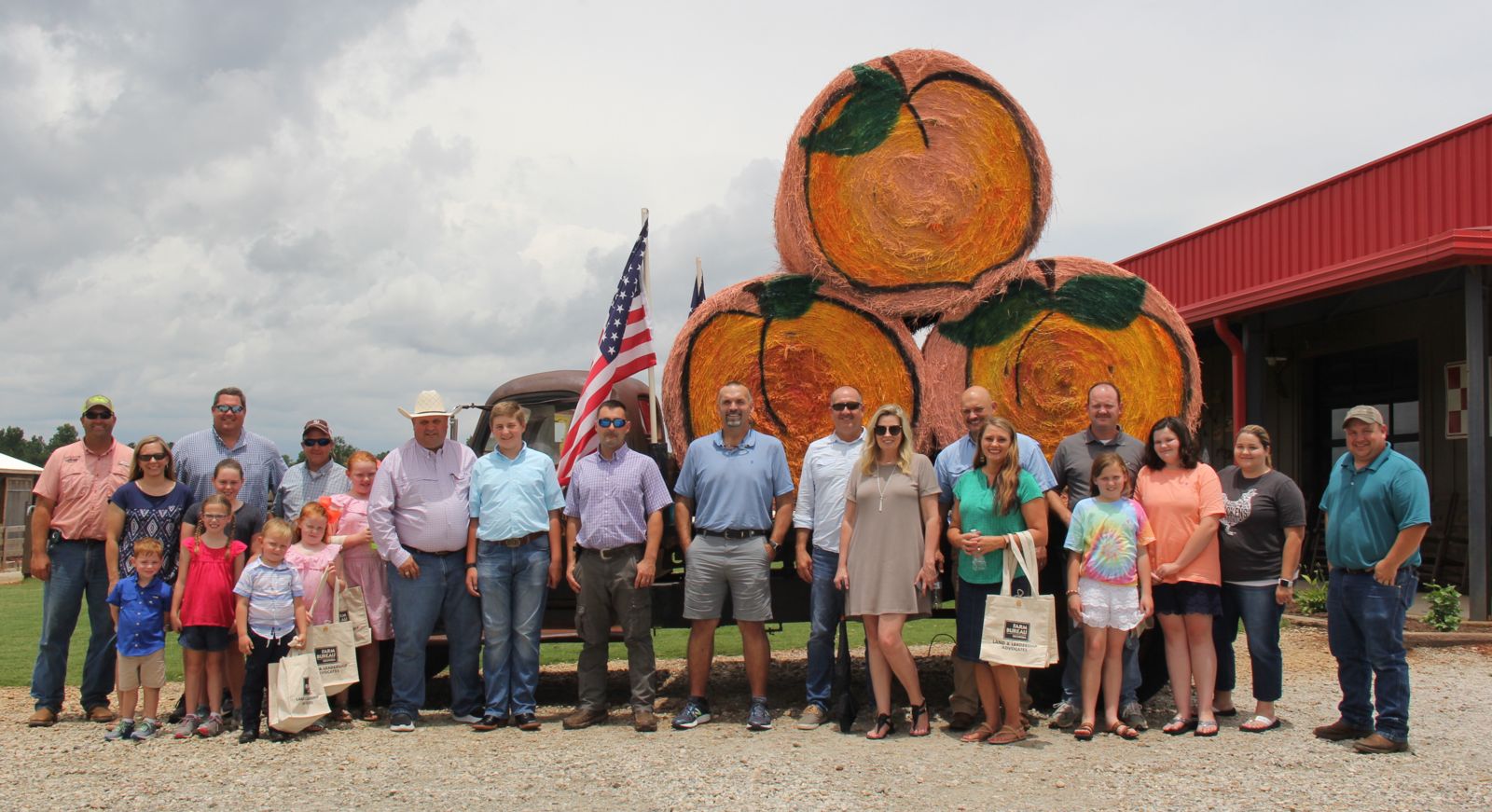GFB News Magazine
Land & Leadership Advocates learn to promote agriculture
Posted on August 11, 2019 12:00 AM
By Jennifer Whittaker, Georgia Farm Bureau News

Studies show consumers want farmers, not public relations professionals, to answer their questions about how their food is grown. Georgia Farm Bureau (GFB) is using its new Land & Leadership Advocates (L&LA) Program to prepare farmers to interact with consumers.
Launched in December, the L&LA Program is providing leadership and advocacy activities for farmers and those who work in agriculture between the ages of 36-50.
“The idea for this program came to me as I was attending American Farm Bureau board meetings and we talked about developing future leaders for Farm Bureau and keeping members involved after the Young Farmers & Ranchers Program,” GFB President Gerald Long said. “We need this age group to be involved with Farm Bureau and tell the story of agriculture. At some point in time, this age group will have to step up to the plate and lead our organization.”
The American and Georgia Farm Bureau Young Farmers & Ranchers programs are for members ages 18 to 35. GFB saw a need to offer programs geared specifically for the 36 to 50-year age group.
In June, a group of GFB members interested in the L&LA program attended a picnic lunch with Long at Southern Belle Farms in Henry County. They had the chance to learn more about the program and receive advocacy training from Mississippi Farm Bureau member Julie White, who is a farmer and Mississippi State Extension specialist.
“Why do we [farmers] only talk about farming with our families and friends? We need to advocate because we don’t want other people telling our story. It needs to be us telling our story,” White said.
White says farmers can advocate for agriculture by striking up conversations with consumers in the grocery store, visiting schools to read books and talk to students about farming, or by using social media.
“Whether you use social media, talk to someone in the grocery store or talk to kids, tell your story about your farm and why what you do is important to agriculture,” White said. “Figure out what your niche [for advocating about agriculture] is and use it! ”
White says it’s easy for farmers to use Facebook, Instagram or Twitter to teach others about farming. She recommends sharing a photo of someone on the farm baling hay, feeding cows, planting row crops or caring for a sick animal to let consumers see how farmers go about their daily tasks.
“Look at the last five posts you put on social media. I would hope that in some of these you shared something about farming and why you’re doing what you’re doing. It can be as simple as one picture with ten words,” White said.
White encourages farmers to post the hard stuff, like calves dying or struggling crops, along with the good stuff like cute calves and pretty cotton.
“Be willing to share it all. Explain what makes a bad day on the farm,” White said.
After sharing that her farm had stillborn twin calves, a week later White posted that her family was able to pair a couple of orphan calves with the cow that lost the calves to nurse. Realizing that farmers and their spouses are busy, White explained that you don’t have to share the work shots on the day they are taken as long as they are seasonal while the activity is going on.
Whatever avenue farmers use to advocate for agriculture, White said, the most important thing is that they be themselves and let their personality come through.
"We need to advocate because we don’t want other people
telling our story." – Julie White
White County Farm Bureau member Nathan Nix, who is also a pastor, has been involved with Farm Bureau for about 25 years. He first served as the county YF&R chairman and is now a county director. He and his wife, Tina, want to get involved with GFB’s L&LA Program to learn how to educate the public about how food is raised and how to answer questions they are asked. The Nixes raise commercial laying hens, sheep, for meat, and honey.
“Society’s conception of farming is so misconstrued. This is why I’m such a proponent of this program,” Nathan said. “We hear a lot about antibiotics and hormones being the reason chickens are growing so large these days. Antibiotics and hormones have been outlawed in chicken production for a while now. We teach people the genetics of the birds are the reason they grow bigger.”
The Nixes are also often asked about nutrition.
“We’re constantly having to explain how we raise chickens,” Tina said. “Some people think eggs from free range chickens are better for you or that brown eggs are better for you than white eggs.”
To learn more about the program, visit www.gfb.ag/LandLeadershipAdvocates.